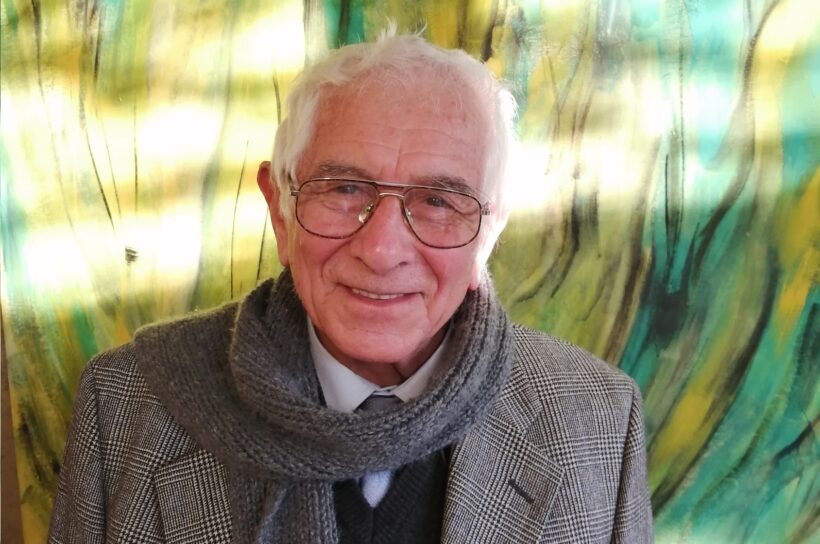We publish here the interview with Simón Maturana, Chilean storyteller who at 87 years old is soon to publish the novel, Promesa Bajo los Magnolios, and the book of short stories, Aventuras de Ayer, Para Nacer Hoy.
Yesterday, To Be Born Today.
By Margarita Bustos Castillo
Simón Maturana Sepúlveda has always enjoyed reading, but even more a series of activities that have allowed him to observe and connect with the world and its constant changes. He is currently based in Santiago de Chile, in the district of Ñuñoa, although for more than eight decades he has lived in various cities on both sides of the Andes Mountains, working in a saltpetre factory in the middle of the Atacama Desert and in a travelling circus, as well as a lumberjack, a worker in an onyx quarry and even an opera singer on radio stations, adventures that have nourished his existence with the aroma of other times.
1. What were your motivations for starting to write literature, and at what age did you begin to do so systematically?
SM: My grandmother, a former Spanish teacher, when I told her about the episodes of the trip I had just made, she advised me: “write about those experiences immediately. Any writer would wish to have had such a variety of experiences”. It was 1962 and I was 27 years old at the time. But I didn’t follow his advice until one night, 50 years later and on my 77th birthday. It was only then that I made the decision to write literature, which led to my first book of short stories.
2. What themes do you develop in your narrative and what readings nourish your imagination?
SM: My journey gave me the opportunity to be a labourer in a circus, a bread delivery boy in San Juan in Argentina, a lumberjack in El Chaco, a labourer in a brickyard in Salta, a worker in an onyx mine, a loader of salt lumps in the Arizaro salt flats and, finally, a miner in the Pedro de Valdivia saltpeter in the Chilean Atacama Desert, experiences that nourished my life and the portraits in my books.
Another source of inspiration are authors such as Pío Baroja, Boris Pasternak and José Santos González Vera. Thanks to all this, it has been possible for me to write literature systematically.
3. Could you tell us about the novel about to be published by Editorial Latamnova? What is the plot of Promesa Bajo los Magnolios?
SM: This novel is about a long-distance love. When in Chile under the military dictatorship, the economic situation of vulnerable people became extremely difficult, Ricardo, a young small
young small businessman was forced to close his business and emigrate to Mendoza, Argentina. That country also had internal problems, but there he found immediate work in his speciality.
He was in love with Luz, his young neighbour, but he was forced to keep his love for her from him. Ricardo’s love from afar was growing and Luz’s anguish at having him far away was manifest.
4. Simon, what would you say to other octogenarians who have encountered barriers or prejudices in their environment and yearn to write literature, to share their memories of half a century or more, through short stories, novels, chronicles or other literary genre?
SM: To my octogenarian colleagues! If you have a yearning to write literature, go for it… we have many adventures and experiences to share. Perhaps I would recommend that initially you don’t comment on it, or rush to be read, until you feel confident.
Begin calmly, and don’t despair at crossing out or tearing up, writing and rewriting are an occupational hazards of the craft. Soon the time will come when you will have to show your work, or contact a publisher, as I did, for publication. It is a wonderful new adventure.













